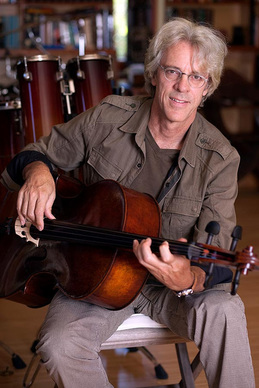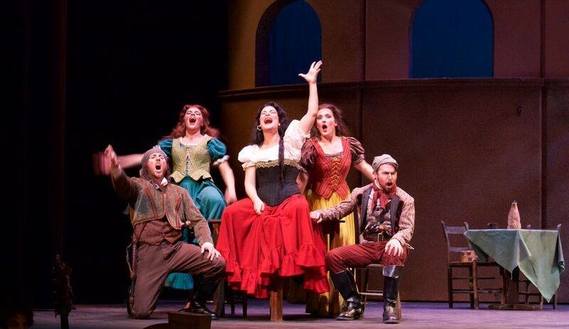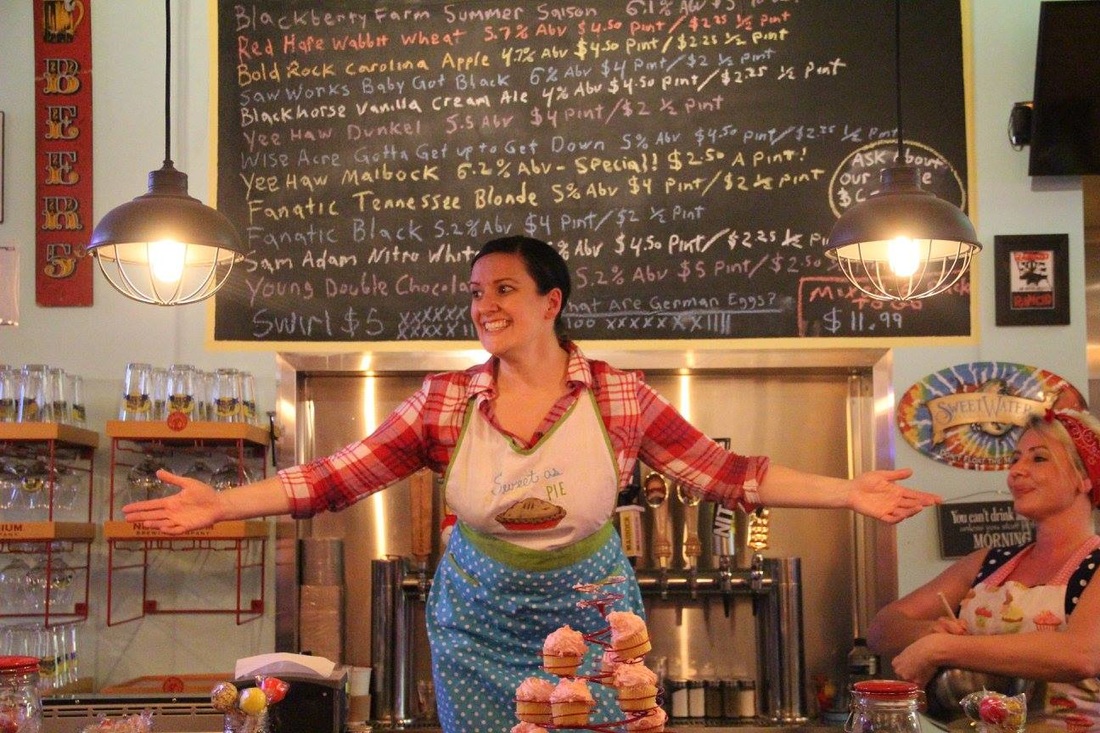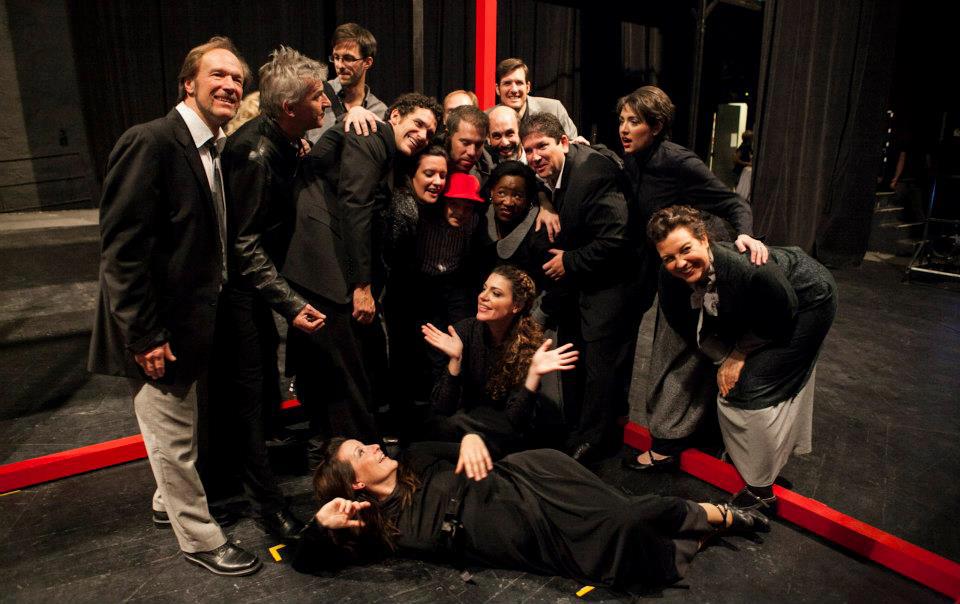|
The latest episode is out. Take a listen. Subscribe. Share with friends.
0 Comments
This morning on NPR, I heard a report about the gender wage gap that exists in the arts. The reporters sounded surprised by this because the arts are "so progressive." I was not. And while a wage gap is troubling, what I find even more troubling is how much harder it is for women to get hired to work in the arts. I can't speak to other art forms, but the bias against women in opera is staggering.
Case in point: The Metropolitan Opera is currently running a production Kaija Saariaho's opera L'Amour de Loin, which is the SECOND opera composed by a woman that the company has produced in its entire history, the first being Ethel Smyth's Der Wald in 1903...113 years ago. It is being conducted by Susanna Mälkki, who is only the FOURTH woman to grace the podium in the illustrious company's 133-year history. N.B. I saw this production last night. I loved it. The piece is more atmospheric than dramatic, which is, perhaps, not to everyone's taste (the nice lady sitting next to us in the Family Circle left at intermission), but the singing is very good, the production is mesmerizing, and the score is transcendant. You should go see it. It's playing through December 29th. While female composers and conductors, I think, have the hardest time of it, female orchestral musicians have fought terrible biases - that is until orchestras implemented blind auditions, where auditioners play from behind a screen, which has, thankfully, increased the number of female and minority hires since the practice began. We singers most notably suffer from gender bias when it comes to the stories we tell and who we use to tell them. If we look at Opera America's ten most performed operas in North America, and break down all of the roles by gender, you'll note that there are approximately 40% more roles for men than for women.* Plus, two of the operas on the list, both by Rossini, use only male chorus. I would like to say that composers writing operas today are doing a better job of using female characters to tell their stories, but I wasn't able to find a pithy list of most-performed operas composed since 1985 to actually do that kind of analysis. If you find one and send it to me, I'll happily do the breakdown on the roles in those operas as well. I am not even addressing administrative and artistic leadership, stage directors, stage crew, designers of all stripes, or any of the many other folks who work together to put on an opera. If you do a little reading, you'll see the same story played out for all of these folks, too, save the traditonally "girly" jobs of costume and make-up design, where it's more equitable. Why, pray tell, would this be? As Ms. Saariaho said in her recent interview with NPR "half of humanity has something to say." Do we honestly not care about hearing women's voices? About telling women's stories? If you are an opera producer, as I am in a loose sense, are you prioritizing gender parity when you pick your seasons? If you're a commissioning organization, are you looking at female composers? Are you looking at stories about women as told by women? Women make up more than half of the population of the world. And I would argue that women make up the majority of professionally trained operatic singers. Anyone who holds auditions can tell you that for every 10 men requesting an audition, there are between 50 and 90 women. (If you are one of those people who holds auditions, please report your numbers in the comments field.) Can we do better, please? This is just embarrassing. *I used AGMA's Schedule C Classification of Roles to create this spreadsheet. Poulenc's Dialogues of the Carmelites is set during another time of political unrest, the French Revolution. While I am hesitant to draw a direct parallel between what is happening in our country right now, issues of class warfare, religious persecution, and populist movements were central themes during that period. In traditional stagings, the nuns march to their death at the guillotine, but I found this particular rendering to be very effective. I'd ask you to enjoy it, but I'm not sure that's the proper verb. Anyone else want to share a favorite emotional moment in opera? I do lots of auditions. Lots and lots of auditions. So do all of my opera-singing friends and colleagues. When I started auditioning, my anxieties around auditioning were about basic preparedness and the fundamentals of singing well. I never knew what would come out of my mouth, so I could just as easily give a terrible audition as I could give an amazing audition. Fortunately enough for me, there were a few amazing auditions in there that landed me jobs in those beginning years, because I know many a singer who did not have that luck.
After doing this for years, I no longer worry about preparedness. In the extremely unlikely event that I mess something up, I just laugh, everyone else laughs and I start over. I am also confident in my ability to sing pretty well, barring illness, even if I don't get to warm up as much as I would like to. Even on terrible weather days, like we have today, my voice works, and my brain works, and audition disasters are practically a thing of the past (knock wood). You would think that would make auditioning a piece of cake. But no. My standards are higher. I want to deliver moving, emotive performances that make people stand up and take notice, even if I look like a drowned rat, it's 10:15 a.m. and the auditor spends the whole time huddling over her coffee cup, barely looking up. I am experimenting with different ways of "bringing it" in auditions, and today my experiment had me directing all of my attention at the imagined space and imagined people that would be in the scene if I were actually in the opera, instead of in a run down dance studio performing for the person sitting behind a table at the opposite end of the room. In other recent auditions, my attention has been directed more inward towards the emotions that singing the character's words make me feel, but I've found that deeply unsatisfying after the fact. I, personally, find it very challenging to chew imagined scenery, but 90 minutes after my audition this morning, I feel much more satisfied with my performance, so I guess I'll try to do it again next time. N.B. If you know any professional opera singers besides me, give them some extra love and kindness during this time of year. Audition season exacts a very high toll on all of us emotionally and financially.  In the short time that I've been writing this blog, Mondays have been for sharing what I'm listening to. Usually its music. Today its the Indie Opera Podcast, episode 31, on which we interviewed Stewart Copeland, the legendary drummer for The Police, who now composes opera. This episode was really fun to record and hearkens back to happier times (at least for me) pre-election. Please check it out. It's really fun.
 Left to right: Mark Craig, Audra Casebier, Elise Quagliata, me, Colin Levin Left to right: Mark Craig, Audra Casebier, Elise Quagliata, me, Colin Levin Last year at this time, I was in tech week for Opera on the James's production of Carmen. I loved my time working for this company, and I really enjoyed the production. This year, they are preparing for a Rigoletto. Shout out to my friends and colleagues in Lynchburg, VA. Wishing I was there to see you perform! If you're anywhere nearby, check out this fantastic company doing really great work. We are in the midst of #OperaWeek, as ordained by Opera America, an organization dedicated to strengthening the opera community. Today is, specifically, #OperaAdvocacy day, on which members of the community are asked to lobby lawmakers to support legislation that benefits our beloved art form. They've provided lots of information, if you'd like to be involved.
Another way that you can be a great advocate for opera is to actively support organizations that promote, produce, or perform opera. Here's a list of my favorites (with minimal apologies for my obvious biases). Give them money. Go to see their performances. Share their news with your network. Boston Opera Collaborative: an organization devoted to developing entrepreneurial artists, who will be the future of opera in America. Their production, Opera Bites, will be performed November 11-13. Indie Opera Podcast: bringing an independent voice to the opera industry. There are 30 episodes available for your listening pleasure. Enjoy! Resonance Works | Pittsburgh: a performance organization that not only performs opera, but also chamber music, choral music, orchestral music, and everything else you can imagine at venues across Pittsburgh. Their annual production of holiday favorite, Amahl and the Night Visitors, will be December 16 & 18. You can also find out what is going on in your area through the National Opera Week calendar of events. Buy tickets. Invite your friends. Show up. Donate. Support opera. |
AuthorOpera singer, opera producer, podcast co-host, lover of music, travel, food, and all things mind-bending. Archives
December 2018
Favorite PostsCategories
All
|




 RSS Feed
RSS Feed